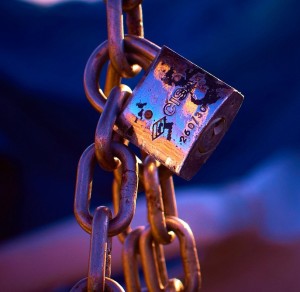aNewDomain — Most people think that the government can track every move we make online. So why would you be surprised that your significant other can easily spy on you, too? Yes, spying is creepy, but it’s a reality.
— Most people think that the government can track every move we make online. So why would you be surprised that your significant other can easily spy on you, too? Yes, spying is creepy, but it’s a reality.
Our smartphones and other personal tech connect us easily to the online world, but they also create huge opportunities for our romantic partners (or wannabe partners) to violate our privacy. Sometimes these intrusions into personal privacy come from a place of genuine concern.
Imagine this situation: My wife is late and she’s not picking up her iPhone. What if she got into an accident and she’s dying somewhere by the side of the road? Well, I know her Apple ID password, so I can use FindMyiPhone to rescue her … or trace her to someone else’s bed.
Situations like this may start out sweet, but can definitely turn ugly. An NPR survey of shelters for abused women found that cyberstalking is now a standard part of domestic abuse in the United States.
NPR reports:
85 percent of the shelters we surveyed say they’re working directly with victims whose abusers tracked them using GPS. Seventy-five percent say they’re working with victims whose abusers eavesdropped on their conversation remotely — using hidden mobile apps. And nearly half the shelters we surveyed have a policy against using Facebook on premises, because they are concerned a stalker can pinpoint location.”
There are many forms of spyware — PhoneSheriff, mSpy and Mobistealth to name a few — that are marketed directly to parents as a way to keep a virtual eye on their teenagers. But anyone can buy them and install them surreptitiously on someone else’s phone, which makes these applications a stalker’s delight.
Once installed, mSpy is invisible on the target phone. Soon the victim’s every movement — literally — is fed second by second to the tracker’s computer. “Contacts, call logs, text messages, call recordings (full recordings of entire conversations), photos, video files, and a log of every website visited by the person being stalked”… mSpy saves it all.
There’s also a keylogger function, to record everything the victim types into his or her smartphone. Say the victim goes to do some online banking at Wells Fargo or Citibank. The stalker can see the website being visited, and the username and password typed in, gaining full online access to the victim’s bank account.”
Start by Changing Your Apple Store Password
 Not only can your stalker know exactly what you do and who you do it with, he or she can sabotage your attempts to find someone less clingy. Toward the end of her marriage, a friend noticed that her phone rang whenever she got close to her boyfriend’s home.
Not only can your stalker know exactly what you do and who you do it with, he or she can sabotage your attempts to find someone less clingy. Toward the end of her marriage, a friend noticed that her phone rang whenever she got close to her boyfriend’s home.
“It was uncanny,” she recalled. The calls stopped right after she changed her Apple Store password. At least set up two-step verification.
Apps like mSpy allow stalkers to block incoming calls and texts from any number, too. When you stop hearing from your new beau, you might assume they’re no longer that into you.
What, if anything, can you do to stymie the NSA-like guy or gal in your life — or one who fantasizes about inserting themselves into it?
Doesn’t Everyone Have Something to Hide?
First and foremost, disabuse yourself of the notion that if you haven’t done anything wrong, you have nothing to hide.
Even if you’re not cheating, you have the right to privacy. You need personal space. Most of all, anyone who wants to follow you around, whether in real life or in cyberspace, is someone incapable of maintaining a healthy, loving relationship. Stalking isn’t love. It’s control.
Second, don’t share your passwords.
Sounds basic — you’ve heard this for years — but Americans don’t follow this advice. A recent study found that 67 percent of people in married or committed relationships share their passwords with their partners.
“I am a psychologist and a sex therapist and I say it is not wise,” relationship counselor Judy Kuriansky told CBS. “I think it’s best if both of us were to keep a little personal life to ourselves.”
 You can’t install mSpy or those other spyware programs without the phone owner’s password. If you’ve already shared your password, change it. Which you should do frequently anyway, to keep hackers off their game.
You can’t install mSpy or those other spyware programs without the phone owner’s password. If you’ve already shared your password, change it. Which you should do frequently anyway, to keep hackers off their game.
Third, get in touch with your inner techie.
Spyware leaves telltale traces in the form of file names unique to each program. Check your devices — all of them — for those exact names. If you find them, you’re being monitored.
If you’re infected, install anti-spyware software that counteracts the program you’ve got, or wipe your device clean and restore from a saved backup that you know predates the spyware installation date.
Consider using an encryption program like the open-source TrueCrypt to make reading your data a pain in the ass. On email programs like Gmail, think about activating the two-step verification option.
Fourth, if you’re sure you know who installed spyware on your device, DTMFA. The undeniable hotness of the movie “Secretary” aside, command and control is for war zones, not romance.
For aNewDomain, I’m Ted Rall.
Ed: The original version of this article ran on aNewDomain’s BreakingModern. Read it here.
Images in order: Shadows by Pablo Miranzo via Flickr; Padlock by Moyan Brenn via Flickr; Stalker by daniellehelm via Flickr













